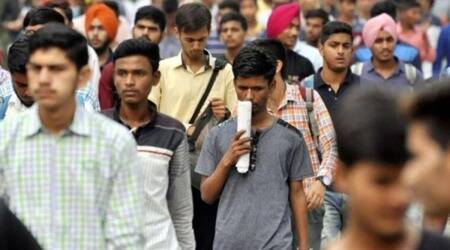Every year, African countries miss out on vast sums of taxpayers’ money due to a lack of logistical support for business transactions and monitoring systems.
However, the real problem is that much of the working population is employed in the informal sector: in markets, in agriculture, the arts and craft industry, in the construction sector, or in transport.
Moreover, many small, independent businesses are not registered — self-employed people often pay neither taxes nor social security contributions.
If they were collected, more tax revenues could significantly improve health and education, expand infrastructure, and contribute to other urgently needed development projects in many African countries.
Best of Express Premium
 Premium
Premium Premium
Premium Premium
Premium Premium
PremiumAccording to the International Labor Organization (ILO), 2 billion people work in the informal economy globally, and in Africa, 85.5% of the population does.
In sub-Saharan Africa, this percentage rises to 90%, according to the World Bank, accounting for 40% of the GNP.
Thus, it is neither efficient nor fair, says the bank.
Formalizing the informal sector
What might a fair taxation system look like? Professor John Gartchie Gatsi, a finance and economy lecturer at Cape Coast University in Ghana, told DW that it would make sense to incorporate the informal sector into the overarching scheme: “If we grow the informal sector and formalize it through various policy interventions, we will gradually move a chunk of the informal sector into the formal sector, and they would come under normal payment of taxes,” he said.
But he added that Africa had faced several hurdles along the way. “We have identified digitilization, electronic and automation of systems, but we have not been consistent in deploying them.”
Ghana — like many African countries — had developed national identification systems, he said. But instead of taking a cue from countries such as Germany or Sweden, Ghana was solely using personal identification numbers to determine who was a citizen and could vote.
European governments, he pointed out, also used such identification systems to link economic activities and thus create more transparency.
Ghana had partially overcome this discrepancy by linking mobile phone SIM cards to respective national identification numbers, he said, explaining that by combining mobile payment options with personal data, greater clarity about money flows resulted. He said that such systems already existed in Rwanda, Tanzania, and Kenya but that it was important they become cheaper and more efficient.
Stricter laws needed
Gatsi also argued that more use could be made of identity documents. “When people need government benefits, they have to provide their ID, which shows records of how much they earned from a particular project and whether or not they paid taxes on it.”
IDs could thus be linked to the repayment of outstanding debts.
In addition, the economist recommended introducing a law that would make those who made payments to informal parties liable for taxes.
However, he said, there was often a lack of political will, partly because of concerns about losing potential voters.
According to Paul Melly, Africa expert at the London-based think tank Chatham House, a combination of political commitment at the top level, structural reforms in the administration, and public relations, has improved the collection of local taxes in Nigeria’s commercial capital Lagos.
For him, a non-bureaucratic approach to collecting taxes is essential to offer a simple solution and incentives, even for informal workers.
Simplifying tax payment
“It’s possible to bring more people into the tax net through a mixture of high profile, firm enforcement of big earners,” Melly told DW, adding that some simple online payment mechanisms should be made available for people to pay tax without fear that the money will go astray.
“They need simple ways to quickly measure levels of tax liability so that it’s not a difficult task to work out how much money an informal business should pay.”
Another reason for African taxpayers’ reluctance to pay taxes was also the assumption that they would not bring them benefits, he added.
Kenyan economist James Shikwati said the question of informality and tax compliance in Africa is complex. One of the reasons is the perception that governments receive money from out of Africa to support their operations. This, he said, led to a lack of trust in government.
“The second being, the perception of corruption, meaning that even if there were informal business actors willing to pay taxes, they believe that it will just end up in corrupt pockets,” Shikwati told DW.
Millions of dollars ‘lost’ in taxes
Shikwati referred to a statement from the Kenya Revenue Authority, which asserted that the state lost nearly $3 million (€2.8 million) in taxes annually from the informal sector because workers there do not pay taxes.
“If the government is interested in getting the informal sector to pay taxes, then they have to offer the necessary incentives that will make the players in the informal sector find it of value, to pay taxes,” Shikwati said.
According to a study conducted in 2019 by the pan-African polling institute Afrobarometer, most Africans are in favor of their governments raising taxes.
However, many Africans also doubt that the tax burden in their country is fairly distributed and only half of those surveyed believed that their government used tax revenues to benefit citizens.
